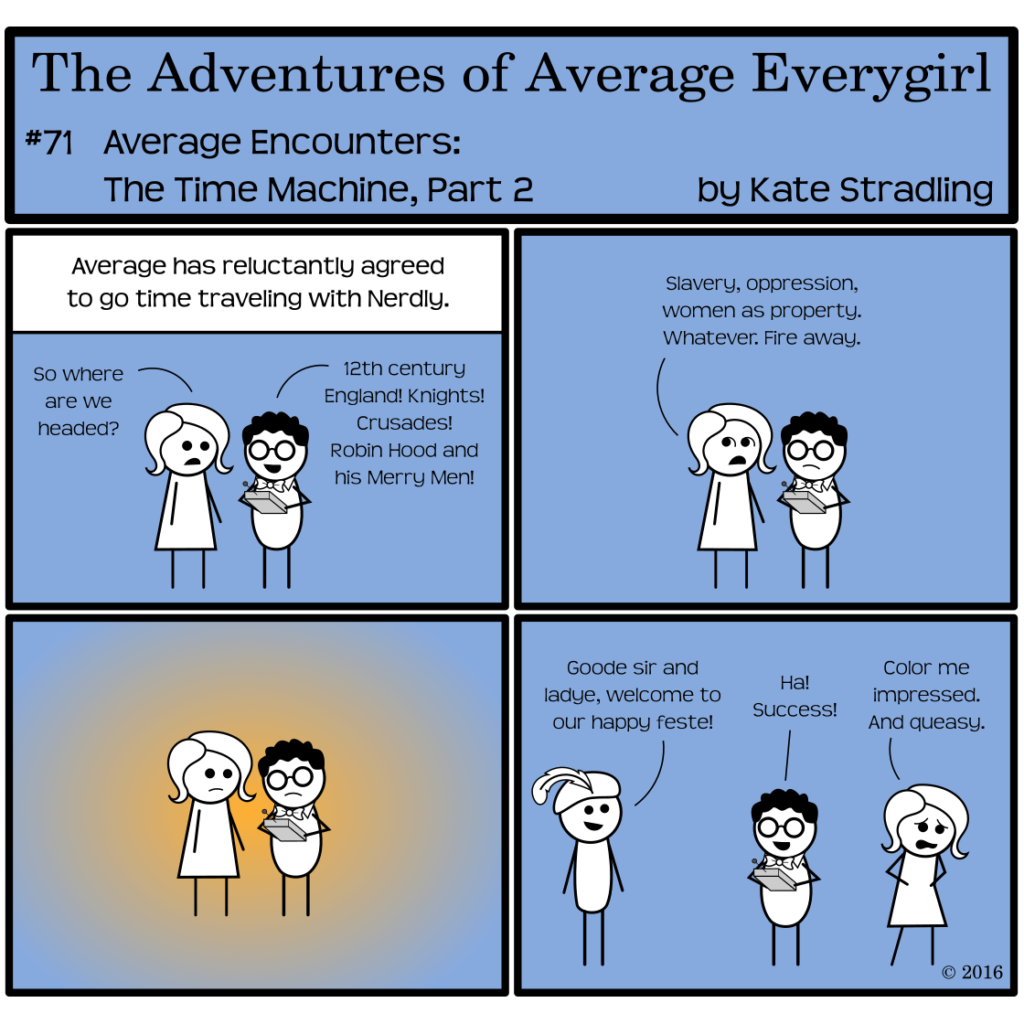
Time travel stories make a lot more sense to me when authors branch out beyond Middle-Ages Europe. Of all the civilizations in the history of the world, Europe of the Dark Ages is probably on the lower end of the Desirable Destinations scale.
And yet, we romanticize it. It’s pastoral! It’s idyllic! Clean air! Fresh, unsullied landscapes and wildernesses yet to be tamed!
Realistically? It’s filthy and germ-ridden and completely devoid of our modern comforts. Sure, there are vast swaths of pristine land, but good luck living out there. A modern soul foraging in the wilds of five hundred years ago would probably die of starvation within a week or two, if the elements didn’t get them first. The cities are even worse: raw sewage runs in the streets and taints the rivers. The water is undrinkable, unless you’d like a side of cholera with it.
And in the royal courts? Heady perfumes cover the reek of body odor because no one ever bathes.
History is gross. The people who lived through it, bless their souls, had no other choice.
Travel Responsibly
Some time-travel stories responsibly take this into account. Others plop their characters in the midst of a bygone Europe and—pardon the topical idiom—polish the turd right shiny. But life in ages past was difficult, and a time traveler would feel that difficulty most keenly.
Sure, acknowledging the negative side of past eras will usher in a plethora of extra variables, but that’s half the fun.
The time-travel plot line works particularly well when the character tumbles back through the centuries by accident or happenstance and has to adjust to this different rhythm of life. When they’re choosing where to go, however, my internal voice pipes up with, “Ooh! Ooh! Pick the Ming Dynasty! The Mayan Empire! Go find out what the Indus script sounds like!!!“
Yes, if I had a time machine, I’d probably use it for recording ancient languages. Don’t judge.
My point is that the world is vast and lovely and richly historied, and if you’re going to go rustic, you can do a whole lot better than Medieval France.
More importantly, you can do a whole lot better than plopping down into one time and camping there. This is a vacation cottage industry prime for the picking: can you imagine the going rate for a three-hour tour of historical events?
(Cue the Gilligan’s Island theme song, haha. I smell a plot in the making.)
As this is our forte I take exception to saying you can’t romanticize history; polish the poop, so to say. Haha. (Love that term, BTW). If you write historical novels, yes, accuracy is paramount. But if you write romance… Heck, we even romanticize romance. You better believe we’re going to romanticize history as well! Haha.
Romance writers have carte blanche to romanticize anything they want. But it’s always nice when they do so responsibly. 😉
Comments are closed.